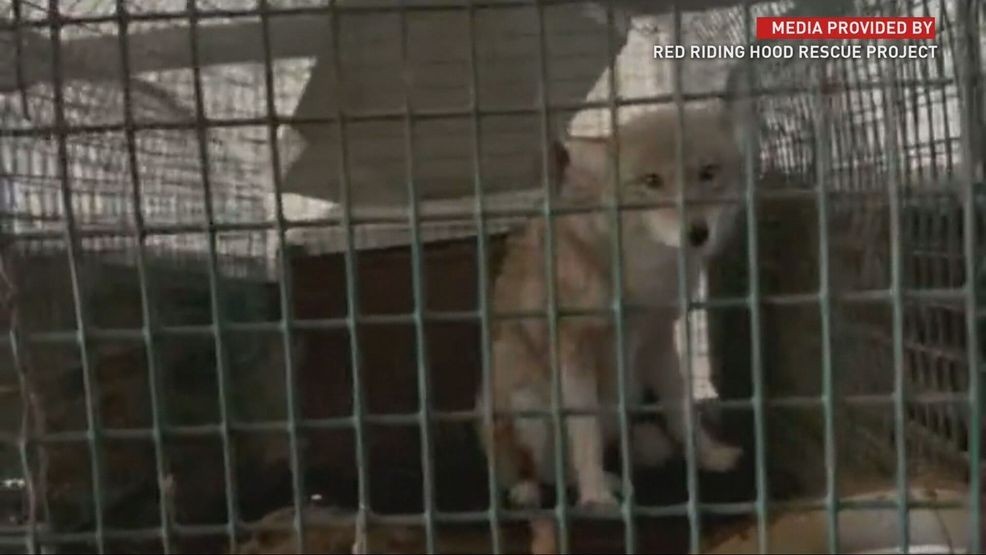
The Aftermath of a Fur and Urine Farm Raid in Ohio
In Middletown, Ohio, three wolf dogs now find shelter at a local animal rescue center following the raid of a fur and urine farm in northeastern Ohio. This incident has sparked discussions about the lack of regulations governing such facilities, with a state legislator working on a bill to address the loopholes that allowed these deplorable conditions to persist.
Susan Vogt, president of the Red Riding Hood Rescue Project, provided a tour of her sanctuary to Ohio State Rep Rodney Creech. During this visit, she shared details about the animals she rescued in January from an Ashtabula fur and urine farm. The conditions were described as extremely harsh—over 400 skunks, wild boar, coyotes, foxes, and wolf dogs were kept in wire-bottom cages without protection from the cold.
“They had frozen ice for water,” Vogt explained. “They had no food. They were being fed skulls of animals that were killed prior to them.” Many of the animals were already dead, and 100 needed to be euthanized.
Vogt emphasized that there are currently no regulations anywhere in the country for animals on a fur or urine farm. Urine from foxes, coyotes, and wolves is used in animal repellents to protect vegetable gardens and commercial crops from rabbits and deer. However, alternatives like “Liquid Fence Deer and Rabbit Repellent,” available at Home Depot, use ingredients such as egg solids, garlic, sodium, and thyme instead of urine.
Despite the availability of alternatives, the urine and fur trade remains strong. The lack of regulation and oversight has led State Representative David Thomas to plan the introduction of a bill aimed at improving conditions for animals in these facilities.
“When we spoke in February, you mentioned you were looking to introduce legislation this session,” Local 12 asked in an interview with Thomas. “Why hasn't it been introduced yet?”
Thomas responded, “If you introduce something that is incorrect in this space, my understanding, and you kind of start off on the wrong foot, that can essentially poison the whole effort.”
Local 12 also posed the question, “It seems pretty simple. Animals should be treated humanely, whether you're at a zoo, a shelter, or a fur farm.” Thomas agreed, saying, “I agree it should be very simple. That's what I believed to be the case when I first kind of started on this journey for reform. However, it has gotten very gray very quickly.”
One challenge in addressing the issue is determining who has oversight of fur and urine farms. Depending on the type of animal, it could involve local, state, or federal authorities. For now, fur and urine farms across the country will remain unregulated, leaving organizations like the Red Riding Hood Rescue to handle the aftermath.
“They're doing fantastic,” Vogt said of the three wolf dogs she saved from Ashtabula. “They are learning how to use their muscles.”
Representative Thomas said he still plans to introduce legislation in the fall. Local 12 will check back with him then to see if the proposed bill moves forward.


